Registered with the Registrar of Newspapers for India under R.N.I 53640/91
Vol. XXIX No. 19, January 15-31, 2020
Playwright/Novelist/Travel Writer/Cartoonist – Marina Remembered
by The Editor
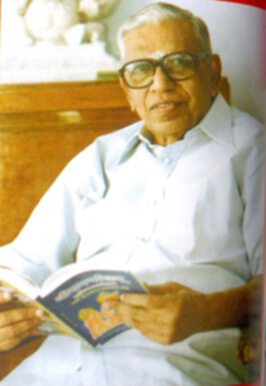 T.S. Sridhar aka Bharanidharan aka Marina.
T.S. Sridhar aka Bharanidharan aka Marina.
It was with some sorrow that I read the news of the passing of T.S. Sridhar aka Marina aka Bharanidharan. I never met the man but I did know his close relatives. He had not been well for quite some time but in his active years Marina as I always like to think of him, brought joy to countless people through his writings in Ananda Vikatan and even more so via the stagings of the plays he serialised in the magazine.
A first cousin of R.K. Narayan and R.K. Laxman, he was brought up at 1, Vellala Street, Purasawalkam, the same house where Narayan too spent his childhood. Both would immortalize the place, the former in his Chinna Vayathinile and the latter in his My Days. In later years, this was also the house where cartoonist Gopulu lived. The building has since been torn down and a Saravana Bhavan stands in its place. Sad in many ways but it was useful for me when I did a heritage walk of the area years ago and could finish at a spot with so many literary memories and provide breakfast as well.
Never studious by nature but always inclined to literary pursuits (his father was man of letters who brought out a magazine, wrote plays and film scripts and was an authority on Kamba Ramayanam), with a sharp eye for the humorous in anything, Marina was meant for the world of journalism. Beginning life as a not-very-gifted cartoonist, he took to his true calling, writing and in that capacity joined the Ananda Vikatan, which he served for many years. He adored S.S. Vasan and his son Balasubramanian. At the Vikatan he may have written countless editorials but what stood out were the writings that came under his two pen names.
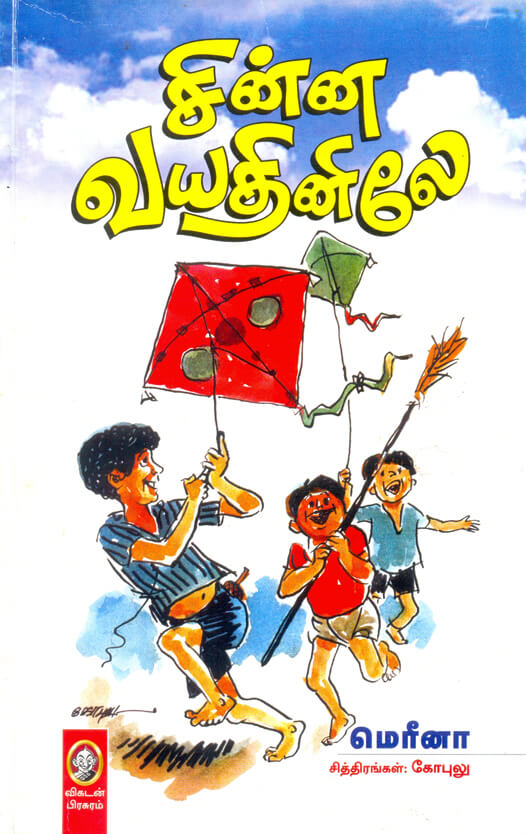 Marina’s memoirs of his childhood, with sketches by Gopulu.
Marina’s memoirs of his childhood, with sketches by Gopulu.
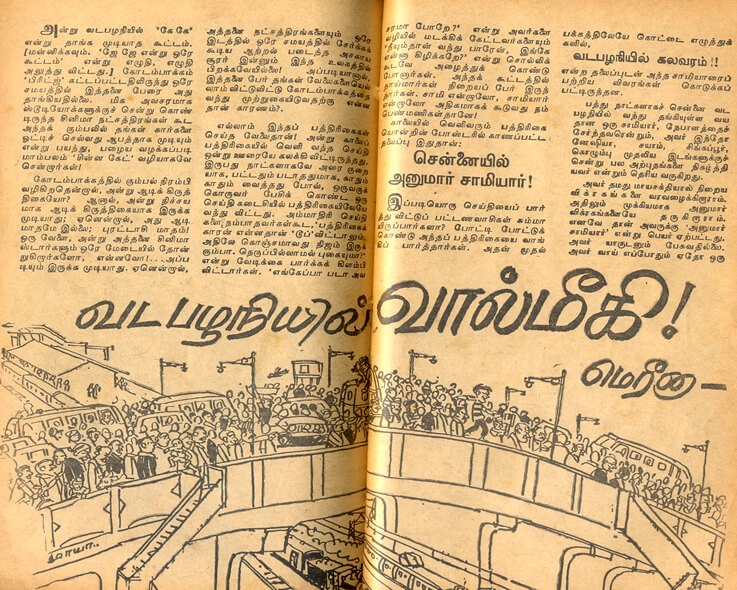 The first instalment of Vadapalaniyil Valmiki, dating to 1966.
The first instalment of Vadapalaniyil Valmiki, dating to 1966.
As Marina he first wrote Vadapalaniyil Valmiki, a novella that looked at the creator of the Ramayana returning to this world and seeing for himself as to how his works are interpreted. He encounters politicians, Harikatha exponents, the Mylapore aristocracy, common people and a milkman whose life he eventually transforms. The story had plenty of what eventually became Marina hallmarks – Brahminic satire, exposing of hypocrisy and plenty to ponder over. A precious possession of mine is a bound volume of the serialised version of this work. Yet another prize I cherish is a copy of his Chinna Vayathinile, gifted by his nephew and writer, VSV.
I grew up reading Marina’s plays. Ananda Vikatan came out each Friday and an important feature of that day was a dramatised reading of whatever was then being written by Marina. I would read it out to my grandmother and we would both enjoy it immensely. For Patti it served three purposes, all of which actually benefitted me – I learnt to read Tamil fluently, improved my speaking skills and also realised the importance of humour. Together, we laughed and wept over Thani Kudittanam (Kamu – the hypochondriac stay-at-home sister-in-law – what a character), Nathanar Kalagam, Oor Vambu (perhaps his finest and which had a spurned wife Kalamamba Mami as the main character), Kaal Kattu and Mapillai Murukku. I did not enjoy his later work Adavadi Ammakkannu to the same extent.
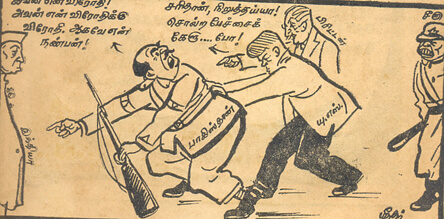 Sridhar’s cartoon on Indo-Pak relations – 1962.
Sridhar’s cartoon on Indo-Pak relations – 1962.
To me from a quintessential Tambrahm world, every character struck a chord – ranging from the old man who is forever stating that he would one day take a suitcase and leave, to the Ammanji about whom nobody really knew how he was related. We had all these and more in any joint family Tambrahm household of those days. Marina taught us to laugh at ourselves and also held up a mirror to our way of life.
Many of these plays made it to stage and I can still recall Poornam Viswanathan acting as the athimber in Thani Kudittanam. This play later became a film with Cho playing Athimber and KR Vijaya as Kamu.
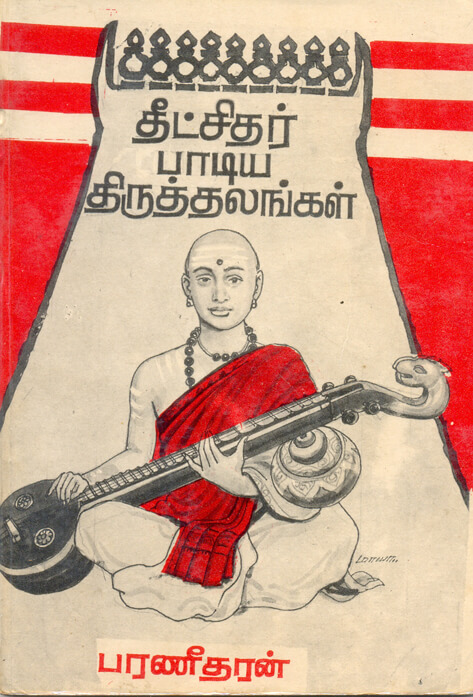 Bharanidharan’s book on Dikshitar
Bharanidharan’s book on Dikshitar
And there was his other avataram – as Bharanidharan. In that capacity he travelled to various shrines and wrote of his experiences. In an era when there was no Wikipedia, he was our go to resource for temples. Others who fulfilled the same role were Anandi and To Mu. Bhaskara Tondaiman in Kalki. All three wrote in more or less the same style. I was later gifted a complete set of Tondaiman’s works and on reading them I have been quite struck by the similarities. But Marina was special. He travelled widely and wrote prolifically on the subject of temples. He later penned a full series on the shrines sung on by Muthuswami Dikshitar, which is a highly emotional work. When my friends Ravindra Narayanan and Sridhar wrote a series titled The Eternal Pilgrim on Dikshitar, this was an important source for reference. Of course, Marina assumed that all songs now fathered on Dikshitar were his but then who are we to comment on that?
His Chinna Vayathinile was perhaps his finest work where he dwelt on the joys and sorrows of growing up in Puraswalkam. It brought to life the entire area in all its colour. Every page made you laugh out loud and then most unexpectedly the concluding sections made you weep as he took you through his father’s sudden illness, death and the break-up of the family.
Taken all in all, he was a great man, who left his impress on the world of writing.


I still remember I met him vikatan office in the yeae1975,& spoke with him.He was very kind enough to speak with me it was my first meet in the vikatan office.